Jurors this week had to sift through five weeks of testimony regarding a slain East Auckland grandmother's unusually fraught business and personal life. Craig Kapitan looks at how a millionaire investor became a murder convict.
In the final months and years of Elizabeth Zhong's life, the Auckland businesswoman had accused two men in police affidavits of threatening to kill her amid unrelated disputes and she was being illegally followed by a former police detective.
Meanwhile, the multi-million-dollar business she helped launch six years earlier, Sunbow Ltd, was crumbling and the bank was trying to foreclose on her $1.8 million Sunnyhills home.
Zhong, 55, insinuated in some statements that the investors in the business claimed to have overseas gang connections with the power to harm her.
Jurors this week had to sift through five weeks of testimony about East Auckland grandmother's unusually fraught business and personal life. She was found stabbed to death in the boot of her Land Rover on the evening of November 28, 2020.
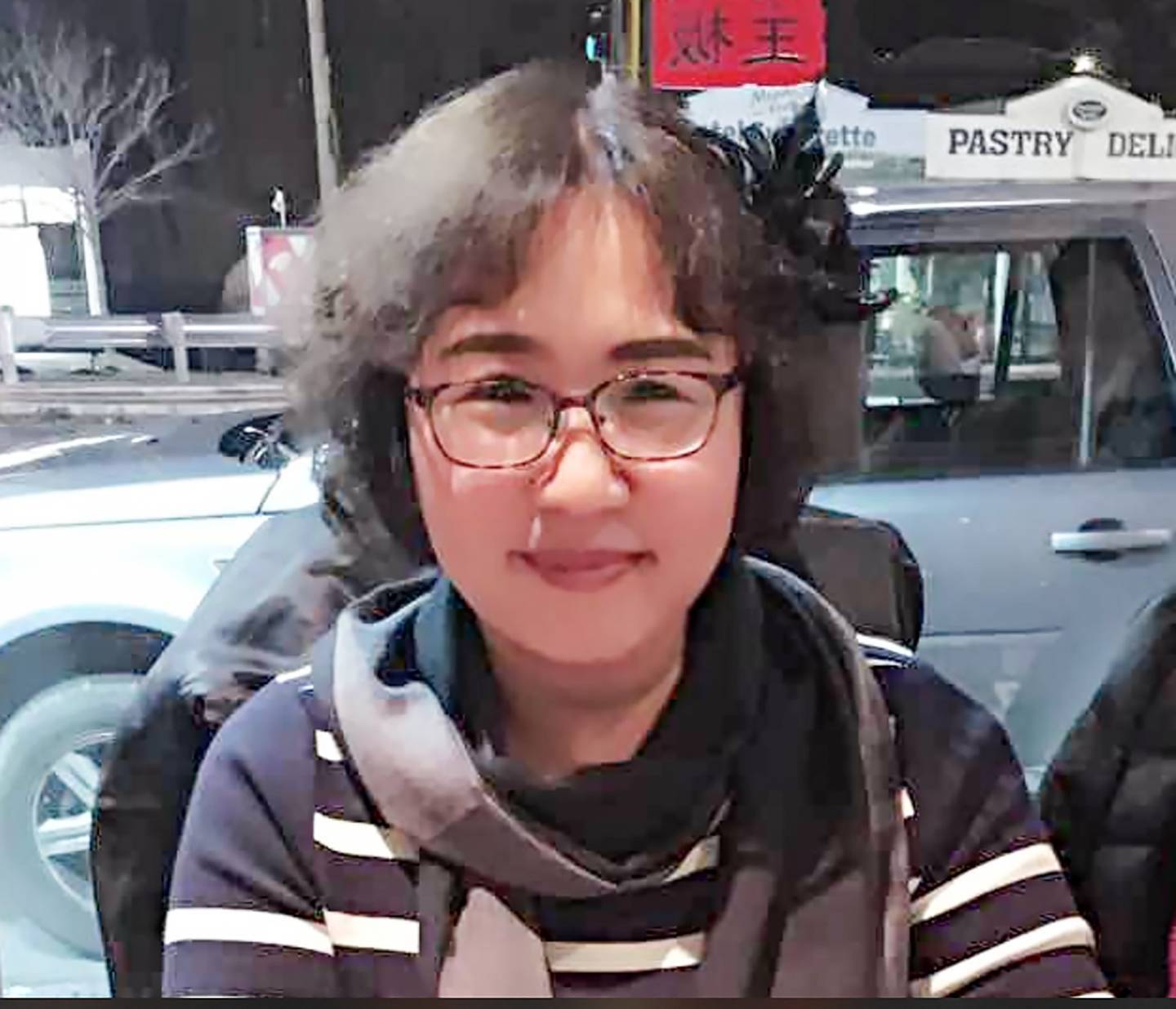
Auckland businesswoman Elizabeth Zhong, 55, was found dead in the boot of her Land Rover in November 2020. Photo / Supplied
But in the end, it seemed to come down to circumstantial evidence against two men prosecutors and the defence focused on as the trial came to a close: former business partner Fang Sun, who was on trial for her murder, and former boyfriend Kai Gui "David" Zheng.
After nearly 10 hours of deliberation over two days, jurors agreed with prosecutors that it was beyond a reasonable doubt Sun was the killer, finding him guilty of murder.
Sun, 48, stood quietly and motionless as the verdict was read, his expression obscured by a mask.
Zheng, meanwhile, hasn't been in the High Court at Auckland since his dramatic exit from the witness stand last month – his wails from behind closed doors heard throughout the first floor as an ambulance was called to take him to hospital after hours of tense cross-examination by Sun's lawyers.
'Bitter resentment'
Sun and Zhong had started Sunbow Ltd together in 2014, while he was still living in China but frequently visiting New Zealand on business - often staying as a guest in Zhong's home when he did so.
At one time the business had more than $28m in assets including two film companies and two vineyards.
But the relationship began to sour around August 2019, when a disagreement over who controlled the company resulted in a heated and protracted civil court battle at the same Auckland courthouse where Sun's murder trial would later take place.
By February 2020, Sun had gone to police claiming Zhong had misappropriated $20 million in investment funds. Zhong, meanwhile, had told friends, colleagues, police and the civil court that Sun had threatened to harm or kill her. She denied misappropriating money and was never charged with any criminal wrongdoing.
Sun blamed Zhong for losing him and his family, either through misappropriation or mismanagement, more than $26m in investments. He also appeared to think, according to a private investigator, that Zhong was trying to get his New Zealand work visa cancelled and had ruined his life.
It was under those circumstances of "bitter resentment", prosecutors say, that Sun's desire for "violent retribution" against his former collaborator and friend turned into action.
The final two months of Zhong's life were especially chaotic.
At the end of October 2020, her business went into liquidation at the order of the High Court and a hearing for her own bankruptcy was scheduled the following month. Sunbow Ltd had accumulated over $16 million in debt.
She attempted suicide shortly thereafter, with her closest friend finding her overdosed on pills and unresponsive in the bedroom where she would be murdered four weeks later.
Soon after the attempt to end her life, her adult daughter began taking on more responsibilities, including sending multiple messages to her mother's ex-boyfriend Zheng, imploring him to give them a $20,000 inheritance they believed he owed her. He insisted it was stuck in a bank account frozen by the Chinese Government. She also wrote to the High Court suggesting her mother was too unwell to participate in civil proceedings.
An ex-cop turned private investigator hired by defendant Fang Sun shared video of events taking place before Elizabeth Zhong's death by homicide. Video / Supplied / Newshub
But Zhong's health issues didn't stop her on November 25 from going to SkyCity casino, a place she had visited 381 times and lost $238,000 over the past four years.
Sun, too, was seeing big changes in his life.
He had recently been forced to move out of a $3.75m Kumeu home that he said had been bought with his money, even though Zhong was the registered owner and characterised him and his family as "squatters". The bank had sold the property to pay down debt.
Unbeknownst to Zhong or anyone close to her, Sun and his family had moved to a Sunnyhills rental just 800 metres from where Zhong lived.
On the evening of November 27, the last night of Zhong's life, a former New Zealand police detective turned private investigator, whom Sun had paid to tail Zhong, sent him data from an illegally placed covert tracking device that showed her Land Rover had remained parked at her home for 22 hours.
"Always there," Jun "Jimmy" Jin told his client.
Former New Zealand Police detective turned private investigator Jimmy Jin testifying in the High Court at the Auckland murder trial of Fang Sun. Video / Supplied / Newshub
According to WeChat and internet search records, Sun spent that evening discussing and researching the stock market. But at 3.38am, prosecutors believe based on blurry CCTV images, he started making his way on foot to Zhong's home.
'Clearly planned'
During his closing argument, Crown prosecutor Gareth Kayes theorised that Sun had begun executing his plan on November 19 to murder Zhong, asking his assistant to book a Waikato beach cottage for November 21-30, even though he had no intention of staying there.
"Clearly this was a planned murder, and there was a concerted clean-up afterwards," Kayes said, explaining that the cottage would give him an excuse after Zhong's murder to leave Auckland for remote locations where evidence could be disposed of.
After arriving at Zhong's home sometime after 3.38am, it's likely that Sun jumped a fence into the backyard, using the rear steps to enter the house through a frequently unlocked door, prosecutors suggested. There were no signs of forced entry.
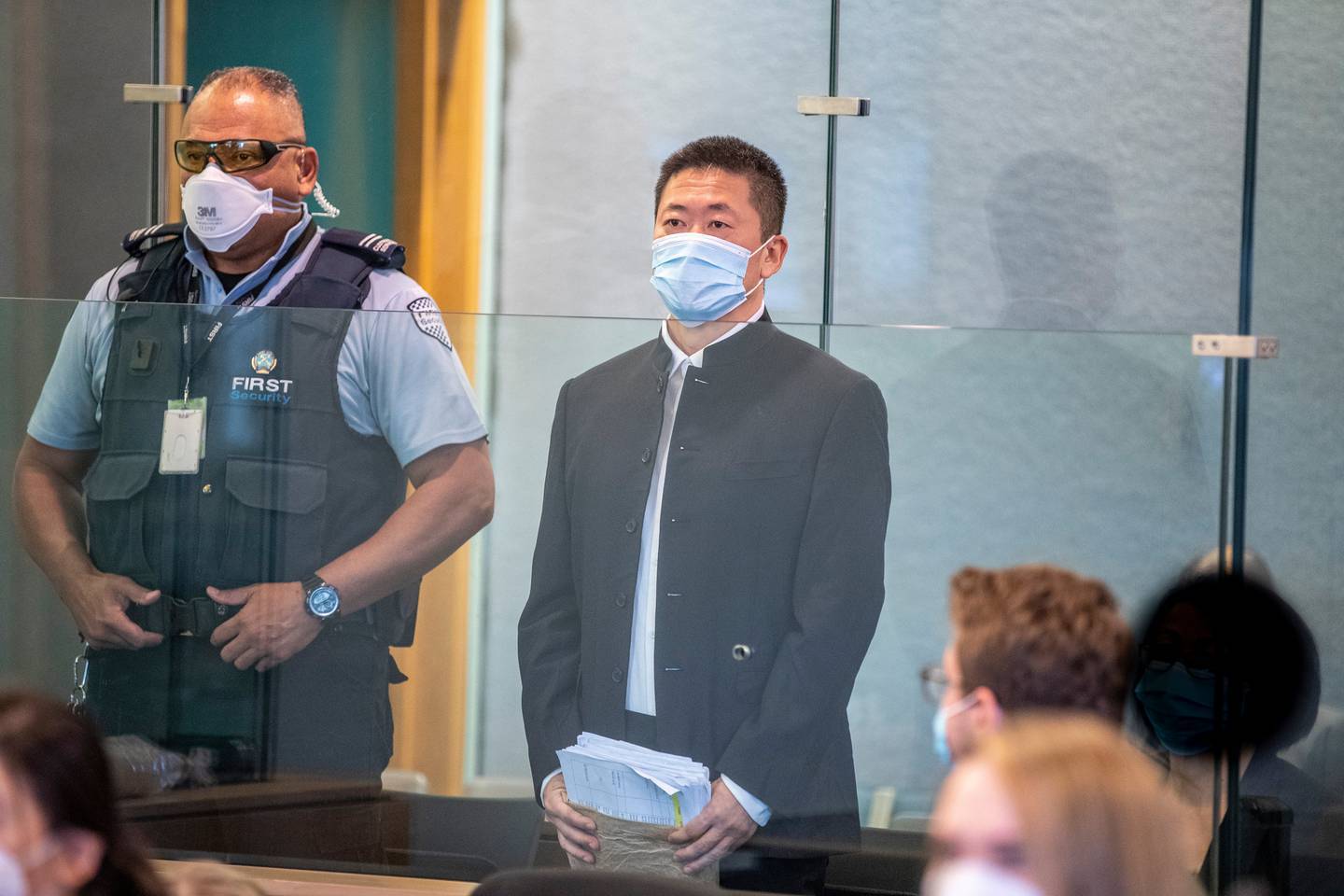
Fang Sun's murder trial in the High Court at Auckland lasted six weeks. Photo / Michael Craig
It's then likely that Sun confronted Zhong sleeping in her bedroom, which would explain why she was later found without clothes, and began stabbing as she retreated to the bedroom's ensuite.
Blood spatter in the area suggests it is where the bulk of the attack happened, including four deep stab wounds that penetrated her lungs and wounds to her neck so deep they severed her spine, resulting in what the pathologist testified was a "sub-total decapitation".
Zhong's phone went dead at 4.26am and was never seen again.
At some stage, prosecutors said, the killer retrieved a large silver suitcase of Zhong's and placed her body inside it so he could wheel her body down the stairs and into her garage, leaving some wheel marks in blood. It appears the suitcase damaged the wall of Zhong's house near the bottom of her stairs.
"Fang Sun then embarked on a thorough clean," Kayes said.
The killer removed the CCTV system and Zhong's laptop, which also went missing, and transferred her body from the suitcase to the boot of her Land Rover. While in the garage, Kayes alleged, Sun then reached under the SUV in an unsuccessful attempt to find the tracking device - leaving bloody finger marks in the process.
"By now, presumably, things are getting light," Kayes said, explaining that the killer was running out of time before neighbours would start waking up. "He must have changed at least some of his bloodied clothing."
Kayes said Sun's movement after that was made clear by the tracking device data, which police later found, and by CCTV cameras in the area. At 7.48am, Zhong's Land Rover was seen by multiple CCTV cameras driving in the neighbourhood before stopping for 15 minutes and 18 seconds near Sun's home.
Sun must have moved some of the items, such as Zhong's laptop, phone and CCTV system, into his own vehicle at that time, Kayes said.
At 8.05am, Zhong's vehicle was on the move again - left abandoned a minute later at nearby Roadley Ave, where police would find it later that evening.
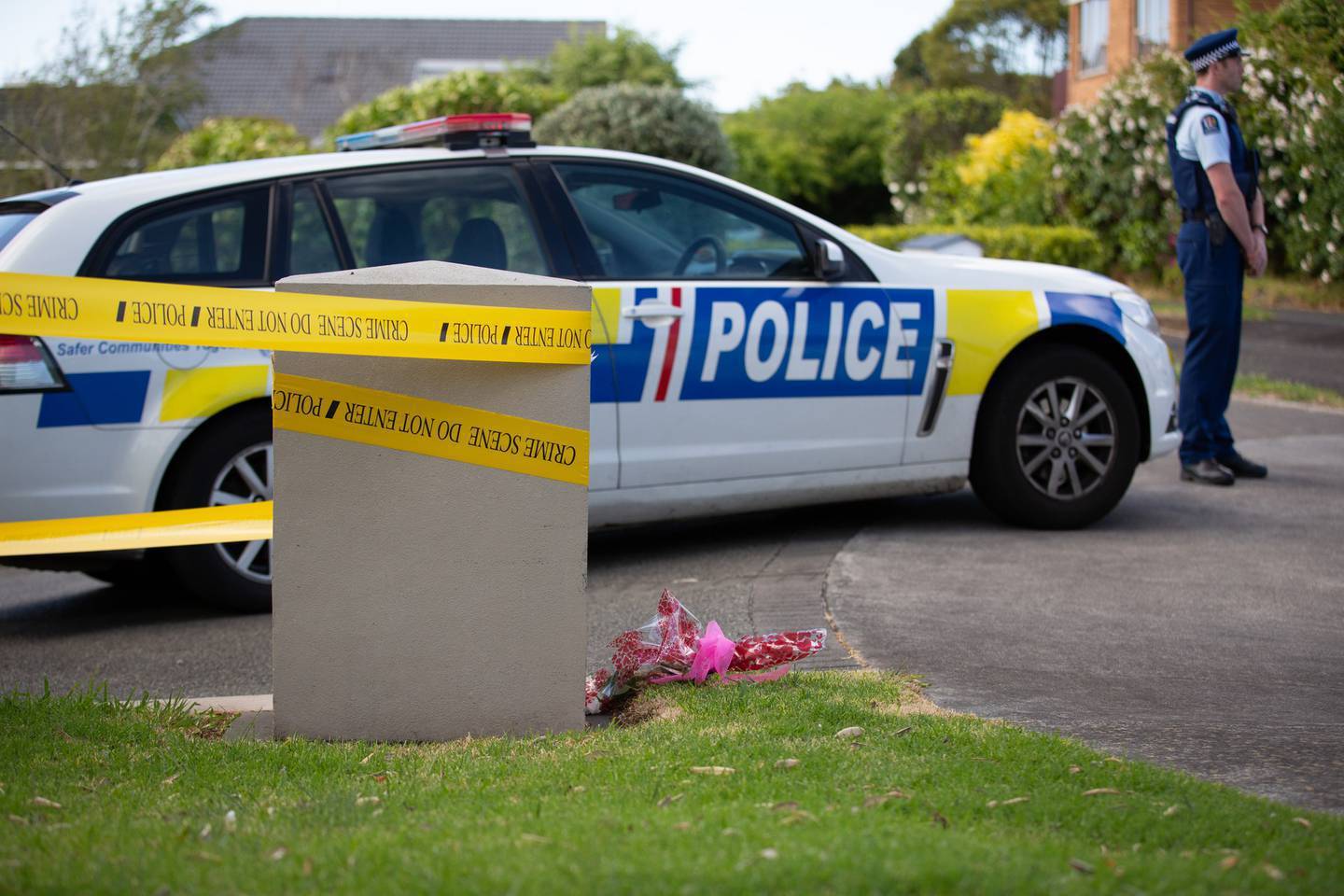
Elizabeth Zhong's Sunnyhills home is forensically examined in 2020. Photo / Sylvie Whinray
At 8.08am, CCTV cameras picked up a figure walking on Roadley Ave in the direction of Sun's home. There were 13 homes between the last CCTV camera that spotted the figure and what would have been the next security camera had the person kept walking in that direction. Sun's house was one of them.
Zhong's close friend, who had been keeping an eye on her since the suicide attempt, noticed she wasn't home that morning and became worried. The police were called after the woman's daughter found blood on the wall of Zhong's bedroom.
Police found Zhong's Land Rover at 11.11am, and CCTV footage showed Sun leaving the neighbourhood one minute later for what would turn out to be a day-long trip to rural Waikato. He wasn't seen in Auckland again until early the next morning, prosecutors said.
"There is absolutely no reason for Fang Sun to go on this particular jaunt into Waikato," Kayes said, speculating that the defendant probably expected to have more time before police got involved.
"Events moved a little quicker than Fang Sun expected that morning," he said.
Same evidence, opposite conclusions
Much of the circumstantial evidence prosecutors touted during the trial as showing Sun's guilt was recast by Sun's lawyers during closing arguments as suggesting his innocence.
At the time of Zhong's death, it would have been apparent to Sun through the civil battle that "almost all the money had gone", Kayes told jurors, describing Sun's hopeless financial situation as freeing him up to act on his violent impulses towards the estranged business partner. He characterised Sun's surveillance of Zhong as "obsessive" and "well beyond any part of legitimate civil proceedings".
But defence lawyer Sam Wimsett said Zhong's trip to the casino could have been a major breakthrough in the civil case. It made sense his client was having Zhong followed in that context, but it doesn't make sense that he would continue to investigate her if he had already decided to kill her, Wimsett argued.
In addition to threats reported by Zhong, Sun's former personal assistant testified during the trial that the defendant had once said Zhong was one of three people he'd like to see dead. Zhong's ex-husband, Frank Fu, who had also previously been accused by Zhong of threatening to kill her, also testified that Sun had threatened to kill their entire family if she didn't come up with the money.
It's not much of a leap to think Sun went from making death threats to carrying them out, Kayes told jurors.
But Wimsett said Zhong's threat allegations against Sun couldn't be trusted because she was motivated by getting an edge over him in the civil dispute and deflecting attention from herself when Sun accused her of misappropriating money. While Sun didn't make the threats, he was aware of the allegations and knew how that cast him in the eyes of police, Wimsett said, describing that knowledge as another reason he believed his client wasn't the killer.
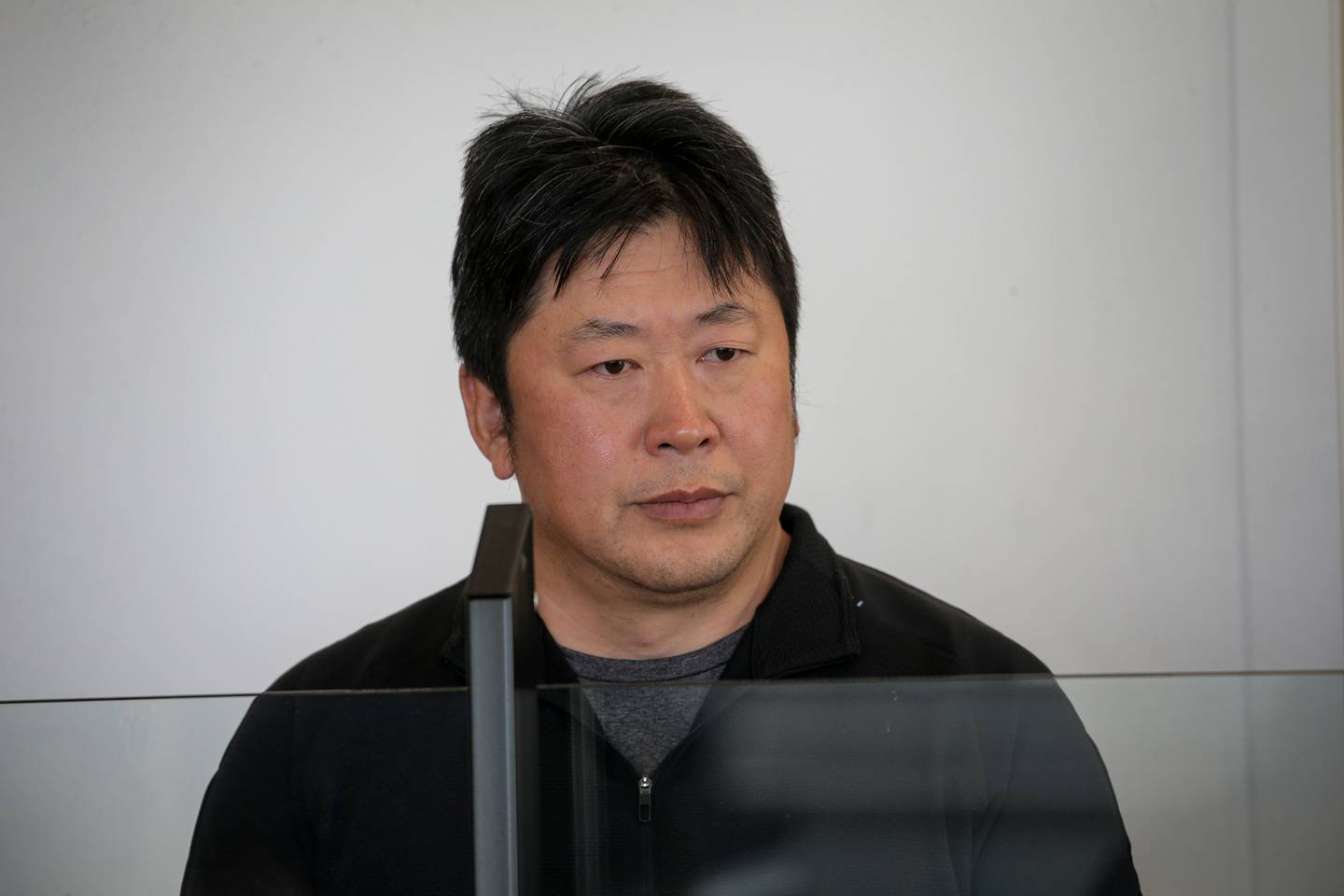
Fang Sun appeared at Manukau District Court in February 2021 after he was charged with Elizabeth Zhong's murder. Photo / Alex Burton
"He's not a complete idiot," Wimsett said. "He's fully aware that the whole world would be looking to him if any harm happened to Ms Zhong."
Prosecutors also pointed to the bloody finger marks underneath the vehicle, pointing out that only Sun and the private investigator knew at that point that a tracking device had been placed underneath it. Wimsett, however, suggested the finger marks could have been left by Zhong's body as she was transferred into the vehicle. Sun, who has slimmed down between the time of his arrest and the start of the trial, was too chubby to fit underneath the SUV that night, he argued.
Wimsett also implored jurors to be very careful when considering two other pieces of evidence: the DNA found on Zhong's fingernails and a sketch found during a search of Sun's home.
Prosecutors said the sketch "clearly" showed a layout of Zhong's home, including markings that appeared to coincide with the coverage areas of the home's internal CCTV cameras and the cupboard under Zhong's stairs where the main CCTV unit was stored.
An analysis of Zhong's fingernails found that the defendant was 670 times more likely to be the contributor than a man selected at random from the New Zealand population.
But the defence noted that of the nearly dozen fingerprints on the sketch, none belonged to Sun. And the DNA analysis was unable to distinguish between the defendant and his son, who was known to Zhong and had been in her vehicle and her house a year earlier. The "incredibly low level of DNA" detected in the analysis could have been transferred to Zhong's nails from an old item that the defendant's son touched long ago, Wimsett suggested.
The other man
Of the more than 50 witnesses to testify during the trial, none made more of an impression than Kai Gui "David" Zheng.
After two days of testimony that concluded with Wimsett asking him directly if he was Zhong's killer, Zheng denied the insinuation and shouted back, "Humiliation! To be asked questions like that!"
He continued to breathe heavily as Justice Neil Campbell asked him to stop speaking. He then placed his forehead onto the surface of the witness stand for over a minute until the judge sent the jury away for an impromptu afternoon break.
The jury could hear him sobbing loudly as they filed out of the courtroom, but moments after they left Zheng flopped out of his chair – causing a loud bang as he hit the floor. Police took him to a side room in an effort to help him calm down, but an ambulance was eventually called, with the court later being told paramedics were worried about an elevated heart rate and wanted to take him to hospital for observation.
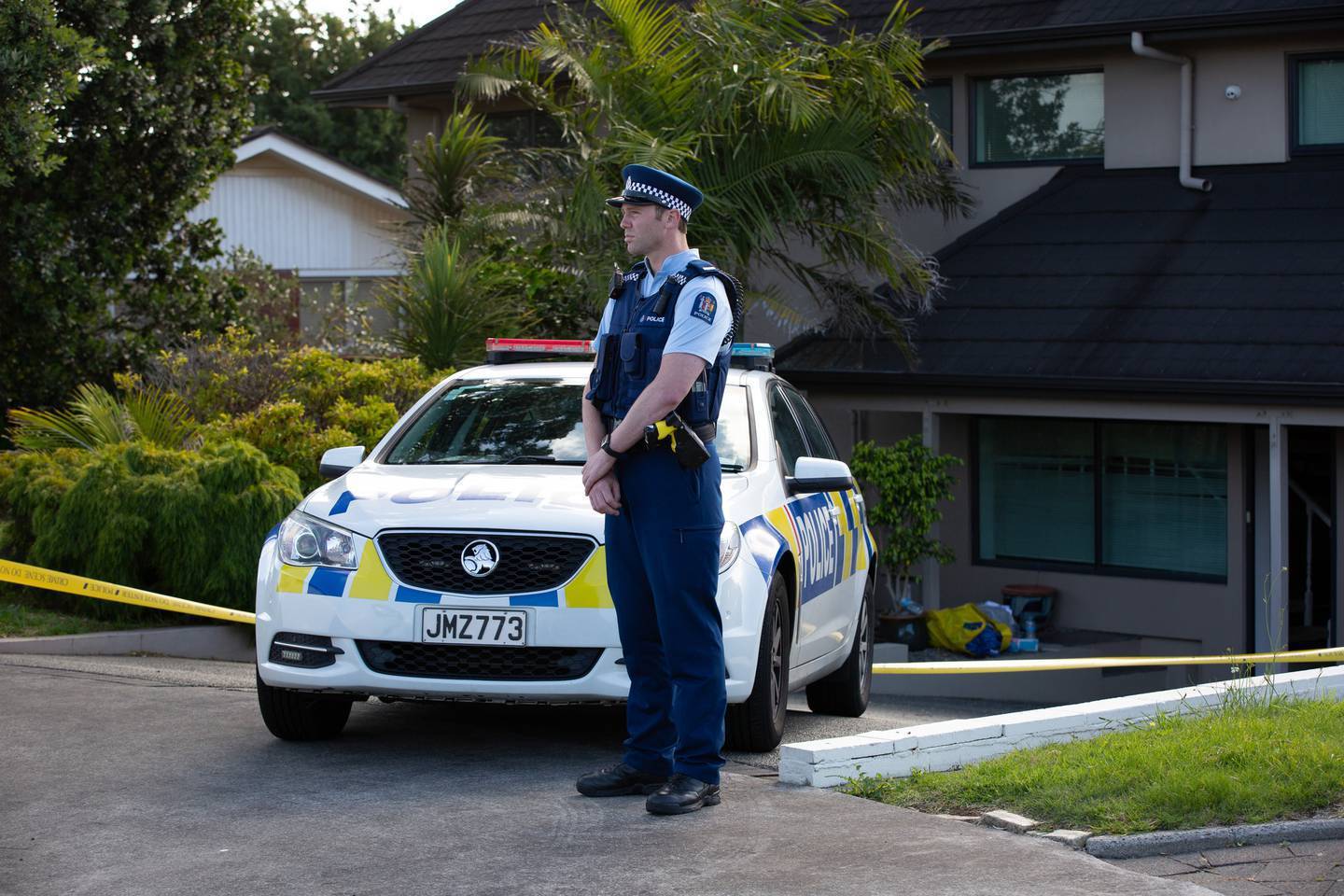
Elizabeth Zhong's Sunnyhills home is forensically examined in 2020. Photo / Sylvie Whinray
Weeks later, a large portion of closing arguments for both the prosecution and the defence focused on him.
Prosecutors said Zheng, a former police officer in China, had no reason to want Zhong dead. The two had dated for about six months before breaking up amicably and had remained good enough friends that he lived with her during the nation's first Covid-19 lockdown. There was the disagreement over the $20,000, but that's not a strong incentive for murder considering he was financially secure enough to own three homes, Kayes argued.
Phone data also suggested Zheng, who lives on Auckland's North Shore, was nowhere near Zhong's home at 7.12 on the morning of her death, less than 40 minutes before her Land Rover was driven in her neighbourhood.
The defence, however, noted that Zheng's fingerprints were found inside the house, including near a hole in the wall believed to have been caused by the suitcase with Zhong inside. He also could not be excluded as a contributor to DNA detected on an exterior door in the back of the house.
Wimsett also suggested his behaviour on the witness stand was strange enough to warrant scrutiny.
In addition to the $20,000 disagreement, Zheng and Zhong had started a business together called Passion Pictures with $50,000 that the defence claimed was improperly siphoned from the company she shared with Sun. If they did that, there could be other money in dispute that authorities didn't know of, Wimsett suggested.
Because Zheng wasn't on trial for murder, jurors didn't need to determine definitively if he was the killer, lawyers noted. But if the jury thought Zheng might possibly have been responsible, that would mean Sun couldn't be found guilty beyond a reasonable doubt, the defence argued.
In the end, jurors felt confident it was Sun.
Take your Radio, Podcasts and Music with you









